The brain is the organ that consumes the most energy in the body, accounting for up to 20% of total daily calories. To maintain alertness, good memory and quick information processing, the brain needs to be provided with the right nutrients.
- 1. Walnuts are rich in nutrients that are good for the nervous system.
- 2. Fatty fish provides good nutrients for the brain
- 3. Blueberries – "Silent allies" of memory
- 4. Turmeric nourishes memory and balances the mind
- 5. Green vegetables – "Protective barrier" for the brain
- 6. Eggs support a clear brain
- 7. Coffee - a source of energy for alertness and creativity
- 8. Pumpkin seeds – "Mineral warehouse" for the brain
- 9. Dark chocolate improves memory and brain circulation
- 10. Whole grains – a source of lasting energy for the brain
A balanced diet rich in antioxidants, omega-3 fatty acids, vitamins and minerals not only helps boost nerve cell activity but also protects the brain from aging. Here are 10 foods that help keep the brain healthy, sharp and full of energy:
1. Walnuts are rich in nutrients that are good for the nervous system.
It’s no coincidence that walnuts are shaped like miniature brains. They are one of the most nutrient-rich nuts for the nervous system, especially plant-based omega-3s, which help maintain cell membrane flexibility and increase the ability to transmit signals between nerve cells.
Additionally, vitamin E and polyphenols in walnuts act as powerful antioxidants, helping to protect brain cells from oxidative stress – a cause of memory loss and neurological aging over time.
Just a small handful (about 5-7 berries) a day can help improve memory, stabilize mood and increase alertness, contributing to maintaining long-term brain health.
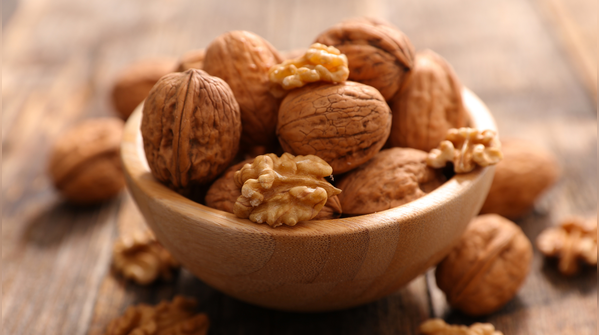
Walnuts help improve memory, stabilize mood, and maintain brain health.
2. Fatty fish provides good nutrients for the brain
Information posted on TOI website said that fatty fish such as salmon, sardines, and mackerel are rich sources of DHA, an essential omega-3 that makes up most of the brain cell membrane.
Studies show that people who regularly add fatty fish to their diet have better memory, sharper reasoning ability, and a reduced risk of inflammation in the brain – a factor linked to cognitive decline with age.

Fatty fish such as salmon, sardines, and mackerel are rich sources of DHA, an essential omega-3 that makes up most of brain cell membranes.
3. Blueberries – "Silent allies" of memory
Blueberries are one of the most effective brain-protecting foods thanks to their high flavonoid content, which helps increase cerebral blood flow, strengthen neural connections, and aid in repairing damage caused by oxidative stress.
Research shows that older adults who regularly eat blueberries have better memory and learn faster. Blueberries may taste naturally sweet like a dessert, but their effects on the brain are just as powerful as nutritional "medicine."
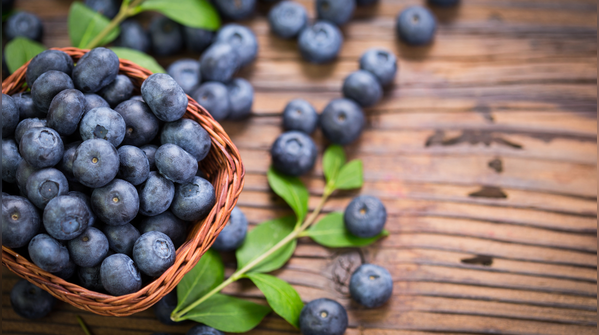
Blueberries – "Silent Allies" of Memory
4. Turmeric nourishes memory and balances the mind
Curcumin, the compound that gives turmeric its characteristic yellow color, has the ability to cross the blood-brain barrier, which is rare for many nutrients. Once in the brain, curcumin stimulates BDNF (neurotrophic factor), an important protein that helps new nerve cells grow, and also supports a stable mood by increasing the production of serotonin and dopamine.
Thus, turmeric is not only a spice but also a "golden food" that nourishes memory and balances the mind.
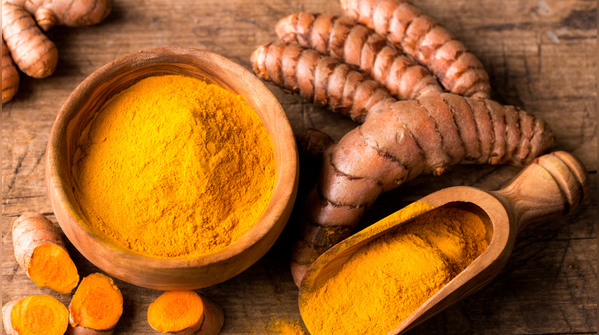
Turmeric nourishes memory and balances the mind.
5. Green vegetables – "Protective barrier" for the brain
Green leafy vegetables like spinach, kale, and mustard greens are rich in folate, vitamin K, and lutein, essential nutrients that help nourish brain cells and keep them responsive.
Long-term studies show that people who eat green leafy vegetables every day have slower cognitive decline, while maintaining calm and mental stability. The abundant amount of chlorophyll in green vegetables is the "silent bodyguard" protecting your brain health.
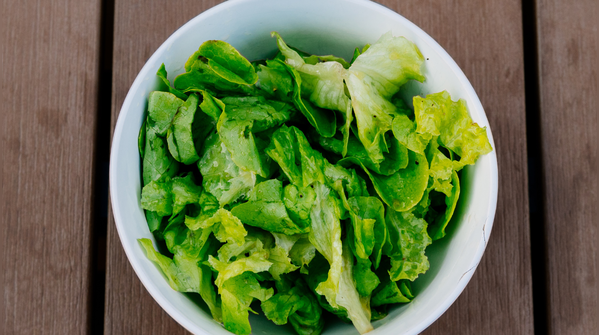
Green vegetables – "Protective barrier" for the brain
6. Eggs support a clear brain
Egg yolks are rich in choline, an essential nutrient that helps create acetylcholine, a neurotransmitter important for learning and memory. Without choline, even caffeine will have trouble helping you concentrate effectively.
In addition, eggs provide many B vitamins (B6, B12, folate), which help reduce homocysteine levels - an amino acid associated with cognitive decline and Alzheimer's risk. Simple food but powerful impact, supporting brain clarity and long-term concentration.

Eggs help keep the brain sharp
7. Coffee - a source of energy for alertness and creativity
Coffee is not only a morning “starter” but also a companion of the mind. The caffeine in coffee helps inhibit adenosine – the chemical that causes sleepiness – while increasing dopamine, bringing motivation, focus and excitement.
In addition, coffee contains many antioxidants, which help protect nerve cells from damage and reduce the risk of Alzheimer's and Parkinson's if used in moderation. When combined with enough sleep, regular water intake and a balanced diet, coffee becomes a mindful ritual, helping to maintain alertness, creativity and long-term brain resilience without causing fatigue or dependence.

Coffee - a source of energy for alertness and creativity
8. Pumpkin seeds – "Mineral warehouse" for the brain
Despite their small size, pumpkin seeds are rich in magnesium, zinc, iron, and copper, essential minerals that support brain function. Magnesium enhances learning ability, zinc promotes nerve signaling, copper supports smooth nerve cell communication, and iron prevents “brain fog” caused by fatigue.
Just one spoonful of pumpkin seeds a day is a "silent tonic" that helps maintain clear and sharp thinking.

Pumpkin seeds – "Mineral warehouse" for the brain
9. Dark chocolate improves memory and brain circulation
High-quality dark chocolate (70% cocoa or more) not only has a delicious taste, but is also a "golden food" for the brain. Flavonoids in chocolate improve memory and cerebral blood circulation, while mild caffeine enhances concentration without causing stress.
Dark chocolate also stimulates the release of endorphins, bringing a feeling of happiness, calmness and mood stability, while protecting brain cells from oxidative stress. Enjoying it in moderation and regularly helps foster long-term clarity, creativity and cognitive vitality.
10. Whole grains – a source of lasting energy for the brain
The brain needs glucose to function, and whole grains provide glucose in a slow-release form, helping to stabilize energy throughout the day. At the same time, the B vitamins in grains nourish the nervous system, reducing the risk of irritability, confusion, or mental fatigue.
Whether it's brown rice, oats, or millet, the key is the whole grain quality. Regular intake helps maintain stable mood, focus, balance blood sugar, and support mental resilience. Over time, it's the "long-term nutrition" that keeps the brain alert, calm, and emotionally balanced even on stressful days.
Please watch more videos :
Source: https://suckhoedoisong.vn/10-thuc-pham-giup-tang-cuong-tri-nho-va-duy-tri-su-minh-man-cho-nao-bo-169251110223907849.htm




![[Photo] Prime Minister Pham Minh Chinh attends a conference to review one year of deploying forces to participate in protecting security and order at the grassroots level.](https://vphoto.vietnam.vn/thumb/1200x675/vietnam/resource/IMAGE/2025/11/12/1762957553775_dsc-2379-jpg.webp)
![[Photo] Highways passing through Dong Nai](https://vphoto.vietnam.vn/thumb/1200x675/vietnam/resource/IMAGE/2025/11/12/1762940149627_ndo_br_1-resize-5756-jpg.webp)







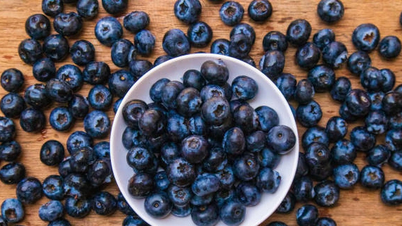






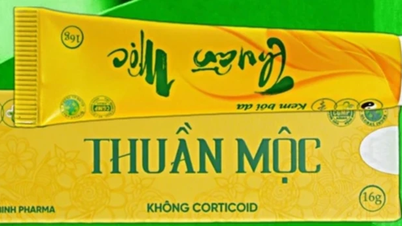





















































































![Dong Nai OCOP transition: [Article 3] Linking tourism with OCOP product consumption](https://vphoto.vietnam.vn/thumb/402x226/vietnam/resource/IMAGE/2025/11/10/1762739199309_1324-2740-7_n-162543_981.jpeg)







Comment (0)